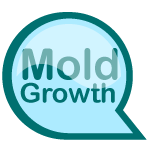There is moisture in the air all around us. Without, we, and much of the plant and animal life around us, would have a very hard time surviving. There is, however, such a thing as “too much of a good thing,” and humidity falls into this category. Here are the top five reasons to avoid excess humidity in your home.





- Humidity is uncomfortable. No one likes to step out of a shower only to feel sticky again a few minutes later. Humidity not only makes you feel icky, but it also actually makes you feel warmer. Because of the amount of moisture in the air, a humid environment slows evaporation of sweat, reducing your body’s natural way to cool itself. This is why a dry 90° feels so much more tolerable than the same temperature in more humid conditions.
- Humidity creates mold. When moisture levels are above optimum levels, mold and mildew grow and propagate. Mold is notoriously difficult to remove once it begins to spread, especially in porous materials like cinder blocks or wood in basements. Mold spores are potent allergy triggers, and the mycotoxins produced by actively growing mold can also cause various other health issues, even in non-allergy sufferers. When humidity levels drop and forced air heating create a particularly dry environment, mold spores dry out and become light and airborne – making them an allergy hazard all year long. Hence, prevention of mold formation and growth is ideal. Using a home dehumidifier, especially in mold and mildew hot spots of the home, is the perfect way to combat the excess humidity that leads to mold.
- Dust mites love humidity. Dust mites don’t drink water. Like many other insects, they absorb the moisture they need through their body from the environment around them. When humidity levels are above 50%, dust mite populations skyrocket. They thrive and multiply which means much more dust mite allergen exposure for you. Keep dust mite populations in check during humid summer months by using a dehumidifiers. And also make sure to use allergy relief bedding to seal away dust mites already in your pillows, mattress, or comforter.
- Humidity costs you money. As stated in our first point above, humidity makes you feel hotter than you would if humidity were lower. In an attempt to feel more comfortable, you may lower the thermostat. It’s important to remember that while air conditioners work on the same principles of refrigerant-style dehumidifiers, they are not designed to focus on moisture removal. Supplementing air conditioning with a dehumidifier (particularly an Energy Star rated model) will can actually allow you to save on cooling costs, by letting you keep that thermostat a few degrees higher without sacrificing on comfort. To further improve your home’s energy efficiency, you should also schedule regular air conditioning repair and maintenance.
- Humidity ruins wood. It may take a year or two to notice a difference, but fluctuations in humidity levels can damage the wood in your home, including wood furniture and flooring. Every notice that your doors “stick” or that the top or bottom rubs against the floor or door frame during the spring and summer? That’s swelling from humidity. Humidity causes expansion in the wood which contracts again when humidity levels drop (especially if the home environment gets overly dry). Expanding and contracting is stressful for the wood, and over time, it can warp or crack. Dehumidification when humidity is too high, as well as proper humidification when humidity is too low help, extend the life of the wood in your home.
Excess moisture can cause a variety of problems, and once you’ve eliminated or reduced the source of excess humidity and moisture in your home, you can often keep what remains in check with a dehumidifier. For your crawlspace consider one of the Top Five Crawlspace Dehumidifiers, or for most other rooms in your home, a Top Five Room Dehumidifier will likely take care of your needs.
Want more than these five reasons to avoid excess humidity in your home? Read on to learn more about humidity, your health, and controlling humidity in any of the resources below.
✔ Effects of Humidity on the Body
✔ Mold Information
✔ Excess Moisture and Mold
✔ Types of Common Household Mold
✔ Control Moisture & Humidity
✔ Dehumidifier Buying Guide
